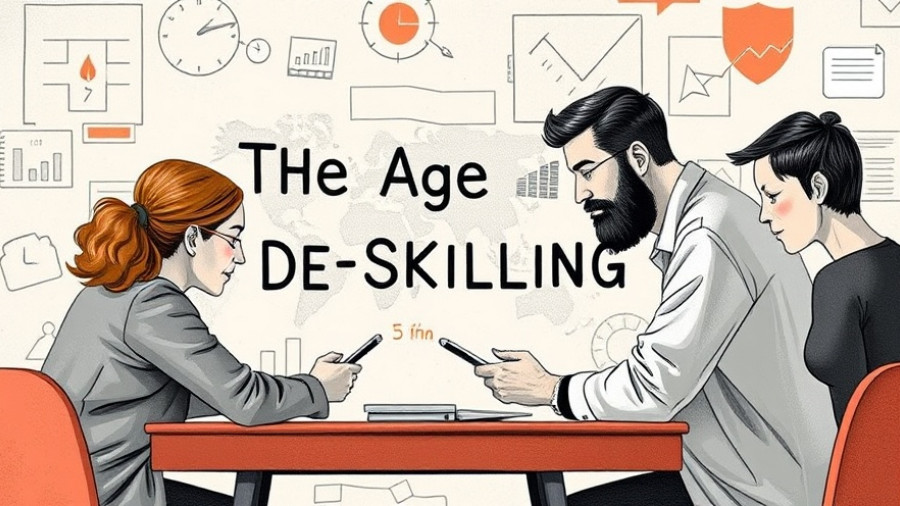
Understanding the Intersection of AI and Human Mental Health
The advent of artificial intelligence (AI) has sparked curiosity not only about its capabilities but also about its implications for our understanding of consciousness and mental well-being. With ongoing debates surrounding the potential of AI to experience consciousness, it raises crucial questions about how these advancements could intersect with our mental health, particularly for those suffering from anxiety disorders and other mental health challenges.
The Growing Concern of Anxiety Disorders in Modern Society
Anxiety disorders affect millions globally and are particularly prevalent among youth, the unemployed, and those facing socioeconomic hardships. Learning how AI can influence mental health awareness, support systems, and stress management strategies could be transformative. While AI cannot feel anxiety, its integration in therapeutic settings—through chatbots or mental health apps—offers innovative coping strategies for those grappling with conditions like generalized anxiety disorder (GAD), social anxiety disorder, and panic attacks.
AI: A Tool for Mental Health Support
AI-driven solutions are continuously reshaping how individuals approach their mental health. From AI-assisted therapy sessions to personalized mindfulness apps, technology is playing a critical role in mental health education. For instance, AI tools can help offer relaxation techniques and breathing exercises tailored to individual needs, addressing common symptoms of anxiety such as unease and self-doubt. Additionally, teletherapy options provide accessible support, bridging gaps in healthcare access and reducing stigma associated with seeking help.
The Social Semi-Solution: How AI Can Absorb Emotional Rests
While AI cannot replace human connection, it can act as a social semi-solution—something that supports mental health without fully substituting emotional experiences. Researchers are exploring AI's role in programming empathy into support systems, fostering resilience building for vulnerable populations. This hybrid approach could encourage proactive mental health measures and create engaging platforms for community outreach, helping families, students, and caregivers work collaboratively in addressing mental wellness.
Future Predictions: The Role of AI in Mental Health Policy
As society continues to integrate AI into various sectors, mental health policy must evolve accordingly. Future predictions indicate that public awareness campaigns about mental health could incorporate AI analytics to identify trends and facilitate early intervention. By leveraging trends in AI, stakeholders can advocate for equitable resources and comprehensive mental health education programs in schools and communities, thus addressing anxiety and depression among at-risk populations.
Challenges in Ethical AI Deployment
However, the path to integrating AI in mental health care is fraught with challenges. Ethical considerations regarding privacy, consent, and the potential for exacerbating existing inequalities demand thorough examination. Mental health professionals must engage in transparent conversations with developers to ensure AI systems do not inadvertently reinforce biases or stigma associated with mental illness.
Beyond Technology: Embracing Holistic Healing
While technology offers innovative solutions, it's crucial to remember the importance of holistic approaches in treating mental health issues. Integrating exercise, nutrition, and traditional healing practices can enrich our understanding of personal well-being. Families, particularly, play a crucial role by providing parental support and creating environments where mental health is openly discussed, thus dismantling cultural stigmas.
Concluding Thoughts: A Call to Action for Mental Health Awareness
As we stand on the brink of significant advancements in AI and mental health care, we have the opportunity to redefine these fields in a way that prioritizes compassion and accessibility. It's vital to advocate for supportive systems that embrace a multi-faceted understanding of mental health, involving AI as just one part of the equation. By promoting mental health awareness and destigmatizing conversations around anxiety disorders, we empower individuals to seek the support they need.
 Add Row
Add Row  Add
Add 




Write A Comment